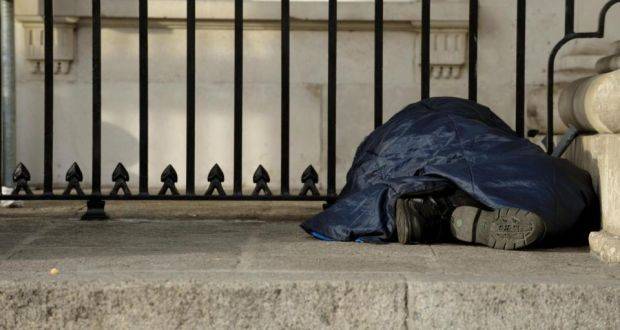Ireland’s homelessness crisis is continuing to worsen, with 5,811 people reported as homeless in February 2016. This figure includes 1,881 children – an increase of 101 per cent in just one year. As homelessness charities repeatedly call on the government for help in finding a solution, a group of young people are attempting to find new ways to plug the gap in funding and address the deepening issue.
Seven former students of Trinity, together with one student in their final year, have been inspired to start the the “One for Ireland” campaign, which aims to raise €1 million from one million people in one day – tomorrow, April 29th.
For this task, their motto is: “One cause, one day, one euro.”
Speaking to The University Times, co-founder of One for Ireland Simon Wilson, who graduated from law last year, explained that the idea came about last May when the group were still students: “I think, coming in and out of College everyday, the visibility of homelessness in Dublin was a massive thing for me – leaving the 24-hour library at 2am and coming back in the morning for a ten o’clock lecture and seeing the same people on the streets that you saw when you left college, still in the same spot. Once we had an idea, we almost had an obligation. We had to do it, because the levels of homelessness in Dublin had reached crisis point.”
The team is made up of eight people under the age of 22, with Wilson and Max Doyle, another co-founder, working full time, in a volunteer capacity, to ensure that 100 per cent of funds raised go to charity. The team’s other members are Caelan Rush, David Henry, Aisling Byrne, Amr Dawood, Ali Kelly and Tom Lenihan, the third co-founder who served as President of Trinity College Dublin Students’ Union (TCDSU) in 2013/14.
Inspired by their own belief in education, the projects they’re working on, Wilson explains, are “all youth-homelessness-related projects. Young people are always the people left behind in government policy.”
For One for Ireland, the homelessness crisis is much more complex than a lack of financial resources. The project is about “addressing one of the massive elephants in the room when it comes to homelessness – that it’s not just about money. There are deeper systemic issues that cause homelessness in Ireland and we can’t get better until we address these issues.”
Wilson explains: “Even if we build more modular homes we’re still going to have the problem of homelessness until we deal with students coming out of care effectively.”
Through programmes that focus on education, the group aims to help those that are leaving state care at the age of 18, those that are “statistically the most likely to end up homeless”.
One for Ireland aimed to unite Ireland’s homelessness charities who, Wilson notes, “are competing for a certain level of resources”. Thus, their approach was a bit different: “What we were saying was that we could bring everyone together for one day and actually unite homelessness charities around Ireland, to try and raise as much money from as many people as we can in one day.”
The team, which is partnered with the Irish Youth Foundation, also plans to launch an advocacy group with the charities they’re involved with – the Simon Community, Focus Ireland, the Peter McVerry Trust, Novas Initiatives, St Vincent de Paul, Thereshold and Bernados – once the new government is sitting. Wilson highlights the negative impact the current hung Dáil is having on the homelessness crisis: “Charities are operating in a vacuum at the moment because, without a sitting government, no one knows which way policy is going to go in the next few months.”
This long-term approach is echoed in their fundraising method: “We realised that a bucket-collection system is a very outdated method, because it requires an awful lot of volunteers. We’re moving into a cashless society at the moment. People just don’t have change anymore.”
The group instead created a barcode system that over 1,500 shop nationwide will be using: “When a customer is making a purchase, the shop can ask ‘would you like to give one for Ireland?’ and add it to the bill that time. That’s a novel approach that we’ve taken. We’re changing the way that people do charity.” It is this through this system, as well as online and by text, that they hope to raise their target of one million euro.
By embracing new technologies rather than relying on huge donations or thousands of volunteers, they aim to do something that’s different, and perhaps more sustainable: “During the Celtic Tiger, companies were much more willing to donate large amounts to charity. We’re trying to create a sustainable way to raise money for charity. Ultimately, we’re trying to change the way that people do charity in Ireland.”
Text ONE to 50300 to donate €2.







